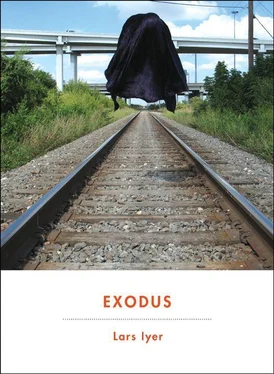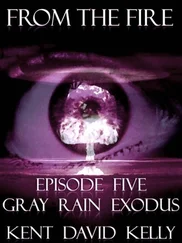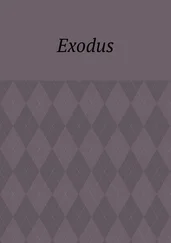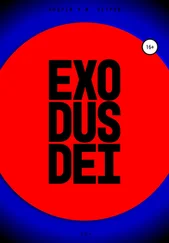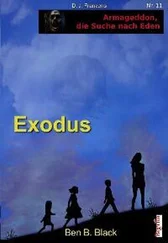And what of him, W.? How many times has he thought to curse my presence in his life? How many times has he shaken his fist at the sky, and cried, ‘Why me God? Why me?’ But no answer has ever come. The whirlwind hasn’t spoken.
Is he still being tested? Am I his trial, his burden? Elihu counsels Job that he should expect no explanation for his travails from God. God is not to be questioned. Then is it only when W. stops shaking his fist at the sky, when W. stops asking why, that the whirlwind might speak?
Dartmoor is all that’s left of the commons, W. says. Of the land that used to be of all and for all; of the treasury of the earth, where everyone could glean and forage. He speaks of how landowners enclosed the good land of the valleys, of the plains, fencing off the common land of the villages and towns. Only rough pasture was left, W. says. Only the wastes and barren lands, where people could live ‘ out of sight, or out of slavery ’ …
The gypsies came to Dartmoor, W. says. Looking for pasture. Looking for vistas! And Devon Robin Hoods, looking for a hideout from which to launch their raids. Escaped peasants, fleeing peonage. And there were would-be revolutionaries too: Ranters , dreaming that the earth would be held in common again, that the land would belong to all, like the sunshine and the breezes; Levellers , working and eating together, joining hands with Christ to lift up creation from bondage; heretics , who prayed that the enmity of all lands would cease, and that none would dare seek dominion over the others, nor desire more of the earth than another …
And now? Today? W. hopes that some new outsiders will come from the valleys and the plains. That some new Moses will lead the new slaves from their Egypt to the high moor.
W. wants to press the cosmic rewind button , he says. He wants to rewind the history of Dartmoor, past the clearing of the woods and forests and the building of longhouses. He wants to rewind to a time before agriculture — to a time when the earth was as yet untroubled by the hoe, unwounded by the ploughshare. He wants to rewind to a time before any sense of rights and ownership. To a time before granaries and food surpluses! To a time before work, and war, and priest-kings and hierarchies!
W. wants to reach the point when groups of hunter-gatherers first crossed the landbridge to Britain, dogs at their heels, following herds of red deer …
The path leads upward, to where the river Dart is supposed to have its source. This is where the water they use in Plymouth Gin comes from, W. says. It’s the peat that gives it its special softness. And the way it’s filtered through granite.
W. passes me his hipflask. We’ve brought our gin back to its wellspring! To its Eden! We’ve completed the circle. We drink to the Dart, and to the rain that feeds the Dart. We drink to the clouds, and to the seawater that evaporates to make the clouds. We drink to the sea and to the rivers that feed the sea.
We drink to our digestive systems. Our gin-processing systems! And we fantasise, as we drink, about a thinker of the moors , a thinker lost on the moor like King Lear and twice as mad as him. About a thinker whose madness is his thought, W. says mystically.
Is that really a rainbow? W. says. The sign of the covenant, W. says. The sign of God’s promise at Sinai. The promise that bound together the Hebrew tribes escaping from Egypt, W. says. Into a people. Into a kingdom of priests . A holy nation .
At the beginning of the march, when they had just set out, the Hebrews’ commitment to God was great, W. says. They were leaving Egypt, leaving their captivity. Who could be more willing? Who, ready to sacrifice more?
Then the murmurings of discontent began, W. says. Then, the frustrations about blisters and the desert heat. The Pharaoh at least fed his slaves! the Hebrews murmured. He at least gave them some modicum of shelter!
What the Hebrews didn’t understand was that the desert was a test, W. says. That the people had been delivered from their captivity to undergo suffering. That the pedagogy of the desert was necessary, if they were to purge themselves of the humiliations of their servitude.
But when Moses descended from Sinai, with the tablets of the Law, glowing in his hands? W. says. There was no more backsliding! No more nostalgia! Forward to the Promised Land! Forward to Canaan! The Hebrews carried the Law in the Tabernacle, W. says. They knew what should be done. Some rabbis have said that many covenants were made at Sinai, not just one, W. says. 603,550 covenants were made, these rabbis have said — a covenant between each of the Hebrews and God. But other rabbis have said that covenants were made between each Hebrew and the totality of his neighbours; that there was a total of 36,427,260 covenants — 603,550 multiplied by 603,550, each person pledging himself in service to the others. It was not enough for each to act justly, these rabbis have said. Each had to see his neighbour act justly, taking on his neighbour’s sins as his own. Each was responsible for his neighbour, for his neighbour’s shortcomings. It was only thus that the holy nation could become an ethical exemplar to the rest of humankind, W. says. It was only thus that it could be as God said, that this people ‘ shall be unto me a kingdom of priests ’.
A kingdom of priests : that’s what W. dreams of being part of: a holy nation. But we’re not much of a nation, W. and I. Not much of a kingdom! If only we could find others to walk with us! If only there were others who would come with us to the promised land! But our friends are scattered and at war with the world. God knows, they have their own problems.
And what of us, who leap like mountain goats over tiny tributaries of the river Dart? I am responsible for him, W. says. But what is much worse is that he is responsible for me , for all the sins I have committed. And that means that I am the obstacle to W.’s crossing into the promised land. That I am the desert across which he has been doomed to wander.
‘ Everything lies in the hands of God except the fear of God ’: that’s what is written in the Talmud, W. says. But when you have no fear of God, as I have not? When the word God, means nothing at all, as it means nothing at all to me? What is he going to do with me? W. wonders. How is he going to teach me the meaning of sin ? Because you have to have some sense of shame in order to understand sin. And when shame is entirely lacking …?
At least Moses had his Levites, his faithful! W. says. At least he had a vanguard who understood the real meaning of Canaan! Ah, what W. would do with a Levite or two, with friends who might think alongside him! With a phalanx of Levites, standing shoulder to shoulder, their shields locked together and their spears poking out. Each Levite holding the other’s place in the line of battle. Each sustaining the other’s courage …
Of course, the Promised Land is only a name for the messianic epoch , W. says, when each person, seeing to the salvation of his neighbours, becomes the Messiah. When each lives in accordance with the Law, W. says. When each plays with the Law, as one child with another.
And until then? W. says. Even the lushest countryside is a desert. Even the heathery bogs of Dartmoor are but an infinite expanse of sand.
Why didn’t he join them, the former Essex postgraduates, who fled Britain? W. wonders. Why did he stay behind?
There’s a story by Kafka — a parable really, W. says. The Master demands that his servant saddle up his horse. ‘Where are you riding to, Master?’, the servant asks. — ‘I don’t know. Away-From-Here, that’s my destination’.
Читать дальше
